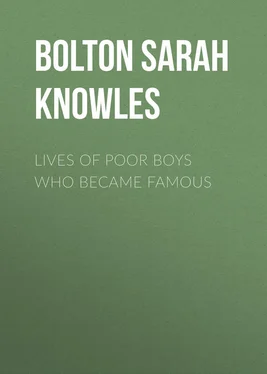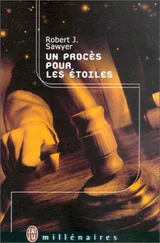Sarah Bolton - Lives of Poor Boys Who Became Famous
Здесь есть возможность читать онлайн «Sarah Bolton - Lives of Poor Boys Who Became Famous» — ознакомительный отрывок электронной книги совершенно бесплатно, а после прочтения отрывка купить полную версию. В некоторых случаях можно слушать аудио, скачать через торрент в формате fb2 и присутствует краткое содержание. ISBN: , Жанр: foreign_prose, foreign_antique, Биографии и Мемуары, foreign_language, на английском языке. Описание произведения, (предисловие) а так же отзывы посетителей доступны на портале библиотеки ЛибКат.
- Название:Lives of Poor Boys Who Became Famous
- Автор:
- Жанр:
- Год:неизвестен
- ISBN:http://www.gutenberg.org/ebooks/35950
- Рейтинг книги:4 / 5. Голосов: 1
-
Избранное:Добавить в избранное
- Отзывы:
-
Ваша оценка:
- 80
- 1
- 2
- 3
- 4
- 5
Lives of Poor Boys Who Became Famous: краткое содержание, описание и аннотация
Предлагаем к чтению аннотацию, описание, краткое содержание или предисловие (зависит от того, что написал сам автор книги «Lives of Poor Boys Who Became Famous»). Если вы не нашли необходимую информацию о книге — напишите в комментариях, мы постараемся отыскать её.
Lives of Poor Boys Who Became Famous — читать онлайн ознакомительный отрывок
Ниже представлен текст книги, разбитый по страницам. Система сохранения места последней прочитанной страницы, позволяет с удобством читать онлайн бесплатно книгу «Lives of Poor Boys Who Became Famous», без необходимости каждый раз заново искать на чём Вы остановились. Поставьте закладку, и сможете в любой момент перейти на страницу, на которой закончили чтение.
Интервал:
Закладка:
At last he was in London, with but thirty cents to buy food and lodging. But he had a poem of twelve hundred lines in his knapsack, which he supposed any London publisher would be glad to accept. He offered it; but it was "declined with thanks." The youth had not learned that Bayard Taylor unknown, and Bayard Taylor famous in two hemispheres, were two different names upon the title-page of a book. Publishers cannot usually afford to do missionary work in their business; they print what will sell. "Weak from sea-sickness," he says, "hungry, chilled, and without a single acquaintance in the great city, my situation was about as hopeless as it is possible to conceive."
Possibly he could obtain work in a printer's shop. This he tried hour after hour, and failed. Finally he spent his last twopence for bread, and found a place to sleep in a third-rate chop-house, among sailors, and actors from the lower theatres. He rose early, so as not to be asked to pay for his bed, and again sought work. Fortunately he met an American publisher, who loaned him five dollars, and with a thankful heart he returned to pay for his lodging. For six weeks he staid in his humble quarters, wrote letters home to the newspapers, and also sent various poems to the English journals, which were all returned to him. For two years he supported himself on two hundred and fifty dollars a year, earning it all by writing. "I saw," he says, "almost nothing of intelligent European society; but literature and art were, nevertheless, open to me, and a new day had dawned in my life."
On his return to America he found that his published letters had been widely read. He was advised to put them in a book; and "Views Afoot," with a preface by N. P. Willis, were soon given to the world. Six editions were sold the first year; and the boy who had seen Europe in the midst of so much privation, found himself an author, with the prospect of fame. Not alone had poverty made these two years hard to bear. He was allowed to hold no correspondence with Mary Agnew, because her parents steadily refused to countenance the young lovers. He had wisely made his mother his confidante, and she had counselled patience and hope. The rising fame possibly smoothed the course of true love, for at twenty-one, Bayard became engaged to the idol of his heart. She was an intelligent and beautiful girl, with dark eyes and soft brown hair, and to the ardent young traveller seemed more angel than human. He showed her his every poem, and laid before her every purpose. He wrote her, "I have often dim, vague forebodings that an eventful destiny is in store for me"; and then he added in quaint, Quaker dialect, "I have told thee that existence would not be endurable without thee; I feel further that thy aid will be necessary to work out the destinies of the future… I am really glad that thou art pleased with my poetry. One word from thee is dearer to me than the cold praise of all the critics in the land."
For the year following his return home, he edited a country paper, and thereby became involved in debts which required the labors of the next three years to cancel. He now decided to go to New York if possible, where there would naturally be more literary society, and openings for a writer. He wrote to editors and publishers; but there were no vacancies to be filled. Finally he was offered enough to pay his board by translating, and this he gladly accepted. By teaching literature in a young ladies' school, he increased his income to nine dollars a week. Not a luxurious amount, surely.
For a year he struggled on, saving every cent possible, and then Mr. Greeley gave him a place on the "Tribune," at twelve dollars a week. He worked constantly, often writing poetry at midnight, when his day's duties were over. He made true friends, such as Stedman and Stoddard, published a new book of poems; and in the beginning of 1849 life began to look full of promise. Sent by his paper to write up California, for six months he lived in the open air, his saddle for his pillow, and on his return wrote his charming book "El-dorado." He was now twenty-five, out of debt, and ready to marry Mary Agnew. But a dreadful cloud had meantime gathered and burst over their heads. The beautiful girl had been stricken with consumption. The May day bridal had been postponed. "God help me, if I lose her!" wrote the young author to Mr. Stoddard from her bedside. Oct. 24 came, and the dying girl was wedded to the man she loved. Four days later he wrote: "We have had some heart-breaking hours, talking of what is before us, and are both better and calmer for it." And, later still: "She is radiantly beautiful; but it is not the beauty of earth… We have loved so long, so intimately, and so wholly, that the footsteps of her life have forever left their traces in mine. If my name should be remembered among men, hers will not be forgotten." Dec. 21, 1850, she went beyond; and Bayard Taylor at twenty-six was alone in the world, benumbed, unfitted for work of any kind. "I am not my true self more than half the time. I cannot work with any spirit: another such winter will kill me, I am certain. I shall leave next fall on a journey somewhere – no matter where," he wrote a friend.
Fortunately he took a trip to the Far East, travelling in Egypt, Asia Minor, India, and Japan for two years, writing letters which made him known the country over. On his return, he published three books of travel, and accepted numerous calls in the lecture-field. His stock in the "Tribune" had become productive, and he was gaining great success.
His next long journey was to Northern Europe, when he took his brother and two sisters with him, as he could enjoy nothing selfishly. This time he saw much of the Brownings and Thackeray, and spent two days as the guest of Tennyson. He was no longer the penniless youth, vainly looking for work in London to pay his lodging, but the well-known traveller, lecturer, and poet. Oct. 27, 1857, seven years after the death of Mary Agnew, he married the daughter of a distinguished German astronomer, Marie Hansen, a lady of great culture, whose companionship has ever proved a blessing.
Tired of travel, Mr. Taylor now longed for a home for his wife and infant daughter, Lilian. He would erect on the old homestead, where he played when a boy, such a house as a poet would love to dwell in, and such as poet friends would delight to visit. So, with minutest care and thought, "Cedarcroft," a beautiful structure, was built in the midst of two hundred acres. Every flower, every tree, was planted with as much love as Scott gave to "Abbotsford." But, when it was completed, the old story had been told again, of expenses going far beyond expectations, and, instead of anticipated rest, toil and struggle to pay debts, and provide for constant outgoes.
But Bayard Taylor was not the man to be disturbed by obstacles. He at once set to work to earn more than ever by his books and lectures. With his characteristic generosity he brought his parents and his sisters to live in his home, and made everybody welcome to his hospitality. The "Poet's Journal," a poem of exquisite tenderness, was written here, and "Hannah Thurston," a novel, of which fifteen thousand were soon sold.
Shortly after the beginning of our civil war, Mr. Taylor was made Secretary of Legation at Russia. He was now forty years of age, loved, well-to-do, and famous. His novels – "John Godfrey's Fortunes" and the "Story of Kennett" – were both successful. The "Picture of St. John," rich and stronger than his other poems, added to his fame. But the gifted and versatile man was breaking in health. Again he travelled abroad, and wrote "Byways in Europe." On his return he translated, with great care and study, "Faust," which will always be a monument to his learning and literary skill. He published "Lars, a Norway pastoral," and gave delightful lectures on German literature at Cornell University, and Lowell and Peabody Institutes, at Boston and Baltimore.
Читать дальшеИнтервал:
Закладка:
Похожие книги на «Lives of Poor Boys Who Became Famous»
Представляем Вашему вниманию похожие книги на «Lives of Poor Boys Who Became Famous» списком для выбора. Мы отобрали схожую по названию и смыслу литературу в надежде предоставить читателям больше вариантов отыскать новые, интересные, ещё непрочитанные произведения.
Обсуждение, отзывы о книге «Lives of Poor Boys Who Became Famous» и просто собственные мнения читателей. Оставьте ваши комментарии, напишите, что Вы думаете о произведении, его смысле или главных героях. Укажите что конкретно понравилось, а что нет, и почему Вы так считаете.












